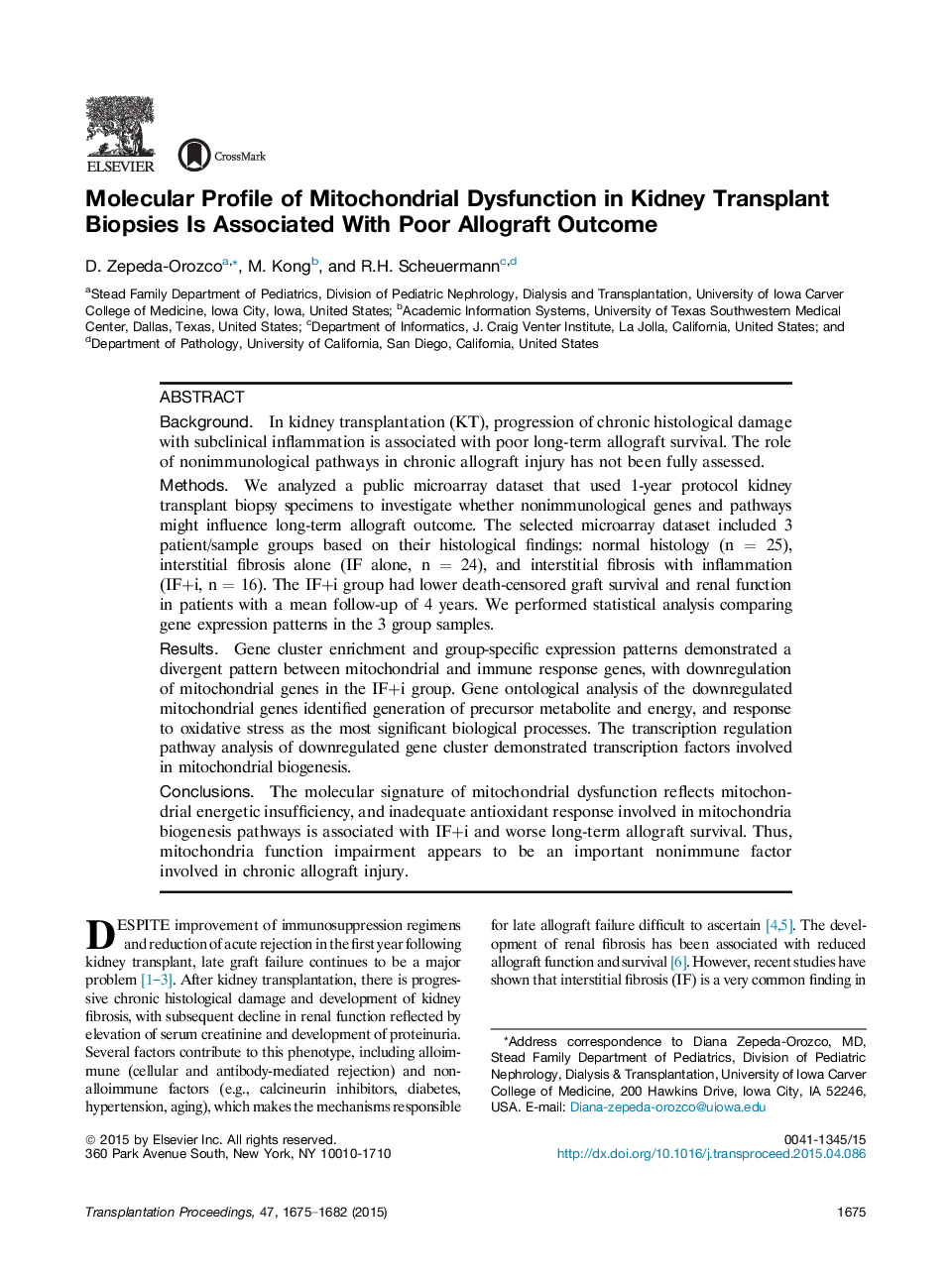| Article ID | Journal | Published Year | Pages | File Type |
|---|---|---|---|---|
| 6247132 | Transplantation Proceedings | 2015 | 8 Pages |
â¢The presence of interstitial fibrosis with inflammation (IF+i) in kidney transplant biopsies is associated with decreased long-term allograft survival, even without meeting criteria for rejection.â¢Using public microarray dataset analysis of 1-year protocol transplant biopsies, we demonstrate that human kidneys biopsies with IF+i have downregulation of mitochondrial-localized gene products involved in energy generation, antioxidant response, and mitochondrial biogenesis compared to kidney biopsies with normal histology or interstitial fibrosis alone.â¢The mitochondrial genes found in our analysis are regulated by transcription factors known to be related in the pathogenesis of acute kidney injury and chronic kidney.â¢Our findings provide the basis for assessment of mitochondrial dysfunction as a potential therapeutic intervention to slow the progression of chronic allograft dysfunction.
BackgroundIn kidney transplantation (KT), progression of chronic histological damage with subclinical inflammation is associated with poor long-term allograft survival. The role of nonimmunological pathways in chronic allograft injury has not been fully assessed.MethodsWe analyzed a public microarray dataset that used 1-year protocol kidney transplant biopsy specimens to investigate whether nonimmunological genes and pathways might influence long-term allograft outcome. The selected microarray dataset included 3 patient/sample groups based on their histological findings: normal histology (n = 25), interstitial fibrosis alone (IF alone, n = 24), and interstitial fibrosis with inflammation (IF+i, n = 16). The IF+i group had lower death-censored graft survival and renal function in patients with a mean follow-up of 4 years. We performed statistical analysis comparing gene expression patterns in the 3 group samples.ResultsGene cluster enrichment and group-specific expression patterns demonstrated a divergent pattern between mitochondrial and immune response genes, with downregulation of mitochondrial genes in the IF+i group. Gene ontological analysis of the downregulated mitochondrial genes identified generation of precursor metabolite and energy, and response to oxidative stress as the most significant biological processes. The transcription regulation pathway analysis of downregulated gene cluster demonstrated transcription factors involved in mitochondrial biogenesis.ConclusionsThe molecular signature of mitochondrial dysfunction reflects mitochondrial energetic insufficiency, and inadequate antioxidant response involved in mitochondria biogenesis pathways is associated with IF+i and worse long-term allograft survival. Thus, mitochondria function impairment appears to be an important nonimmune factor involved in chronic allograft injury.
